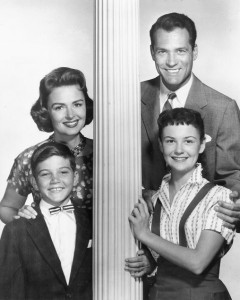Meghan and I are about the same age, but for several years, scarcely a day passed without my checking the Republic for her obituary. When I worked in foreclosures, I scanned our files for her name and her husband’s, praying to learn they’d soon be pitching a tent on the slopes of Mummy Mountain. Meghan was my general manager back when I worked at an online university’s sales department, and she taught me a lot about life.
“We’re not selling widgets,” Meghan would remind us during our dismal production meetings. Technically, she was right. We were selling four- and five-class certification courses in project management, supply-chain management, and the like. Our target students were professionals seeking an edge toward their next promotion, and it had been assumed their firms would be eager to foot the bill. But this was turning out to be the case only rarely. Worse, it was becoming apparent that many community colleges were offering comparable courses at a fraction of the cost. Closing a deal meant finding someone both rich enough to pay out of pocket and dumb enough not to shop us, which was exactly as hard as it sounds.
One cold January morning, I pointed out these structural flaws. I’m afraid I spoke at some length, and with some eloquence, which is to say I employed the word “bullshit.” Meghan, though her favorite catchphrases included “Excuses are like assholes! Everyone has one and they all stink!” — a point she sometimes smote tables with her palm to emphasize — turned the color of her favorite queso claro. Clearing her throat, she proceeded to her next bullet point. Shortly afterward, she engaged me in a game of cat and mouse that ended three months later with me out on my ass, ineligible for unemployment because I’d left behind my resignation letter in her manicured hand.
Though I didn’t begin my catechesis until about 20 months later, by which time I’d started working for a less Dilbert-like company, my run-in with Meghan shaped my expectations for priests. At the time, these expectations were mainly inchoate and instinctive, but now that a debate on clericalism has set the Internet abuzz, it may be time to unpack them for the ages:
1. A priest is first and foremost an authority figure. He knows it.
2. He may be highly competent; he may even possess extraordinary talents. But there are no guarantees. Remember: The Peter Principle was named for an Apostle.
3. He is probably subject to royal reamings from his own bosses. The fact that he was assigned to your parish might count as one of them.
4. He might field criticism from below with equanimity. Then again, he might not. His reaction might well depend on what he ate for lunch or how the Cardinals did last Saturday.
And here are the corollary rules of engagement:
1, Figure out very quickly if Father is likely to take a shine to you. If so, suck up shamelessly. If not, be invisible. If you can’t be invisible, be anonymous. If you can’t be anonymous, smile broadly and keep moving.
2. Respect the chain of command. If Father has appointed an official or unofficial consigliere or underboss, lodge petitions with him or her whenever possible. For optimal results, have one of his favorites lodge it for you.
3. Father should be taught as if you taught him not/And things unknown proposed as things forgot. (The line comes from Alexander Pope, so it must be infallible.)
4. Whatever he doesn’t like make sure to do only when he’s not around. In every case, you’ll get your best work done when he’s not breathing down your neck.
Guess what? It’s worked. No priest I’ve met could stand serious comparison to Meghan, and for that reason, I’ve never felt short-changed. It’s just possible that another Catholic from another background might see these guys as preening jerks (young fogies, lukewarm lumpkins, whatever), but I’d bet that person is setting the bar in a very different place. Making Meghan my baseline has ensured that all my surprises have turned out pleasant.
For all these rules may sound cynical, applying them properly requires imaginative sympathy, and even humility. Beyond assuming that Father is a put-upon sad sack who feels compelled to play Fulton Sheen, it means asking yourself, “How would I, sad sack that I am, hold up under Father’s pressures, the pressure to be Fulton Sheen among them?”
No doubt some people will be able to say, with perfect accuracy, that they could do his job standing on their heads, even with Lou Grant or Bill Lumbergh for a bishop. Not me. I’d be one of those non-hackers who ends up serving Mass at some convent in a swamp, the DTs making his life a permanent Pentecost. Anyone who lasts more than a few years in the job has my gratitude, and keeping a nervous distance is my way of saying, “Thanks for your service.”
This might also sound like a recipe for over-identification with priests — for becoming part of what Pope Francis calls a “clericalized laity.” It’s anything but. Taking for granted priests’ personal limitations and vulnerability to institutional pressure means recognizing that you can only do the heavy lifting on your own. Father can’t make a good Christian out of me any more than Meghan could make me into a top closer (although both may be inclined to sermonize toward that end).
There’s something touching, though, about seeing so many Catholics expect the world from their priests. Whether they’ve based their expectations on some brilliant and pastoral figures from their own pasts, or are working from some ideal, imaginary, or media-generated construct, I don’t know. Whichever the case may be, I believe I’ll keep on going the way I have. Nobody’s written me up for it yet.















